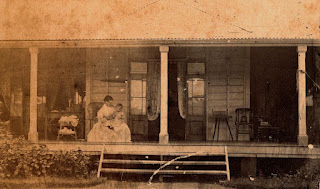A
Passage to India no es solo la historia de una supuesta
violación sino también la descripción del trato de los británicos hacia la
gente de la India. ¿Habrá racismo,
discriminación? Claro que sí. E. M. Forster, el autor, vivió en el
lugar y sabía de lo que hablaba.
En vocabulario
encontramos verandah y averiguamos sobre la hookah o
pipa de agua.
Más abajo ponemos una foto de turcos en 1.920 fumando la hookah.
… the tobacco progressed up into his lungs and
nostrils, driving out the smoke of burning cow manure that had filled them as
he rode through the bazaar. It was delicious…
Introducción
A
Passage to India es una novela del inglés E.
M. Forster,
ambientada en la época de la India bajo el poder británico
y los movimientos independentistas en
la década de 1920. La historia se basa en las experiencias de Forster en la India.
A
Passage to India se centra alrededor de Aziz, Cyril, Mrs
Moore y Adela. Durante un viaje a unas cuevas Adela se queda sola con Aziz,
entra en pánico y escapa. Se da por hecho que Aziz había intentado abusar de
Adela y se sucede un juicio.
Paragraphs
… Abandoning his bicycle, which fell before a
servant could catch it, the young man sprang up on to the verandah.
He was all animation. "Hamidullah, Hamidullah! Am I late?" he cried.
"Do not apologize," said his host.
"You are always late."
"Kindly answer my question. Am I late? Has
Mahmoud Ali eaten all the food? If so I go elsewhere. Mr. Mahmoud Ali, how are
you?"
"Thank you, Dr. Aziz, I am dying."
"Dying before your dinner? Oh, poor Malimoud
Ali!"
"Hamidullah here is actually dead. He passed
away just as you rode up on your bike."
"Yes, that is so," said the other.
"Imagine us both as addressing you from another and a happier world."
"Does there happen to be such a thing as a hookah
in that happier world of yours?"
"Aziz, don't chatter. We are having a very sad
talk."
The hookah had been packed too tight, as was usual
in his friend's house, and moved with difficulty. He manipulated it. Yielding
at last, the tobacco progressed up into his lungs and nostrils, driving out the
smoke of burning cow manure that had filled them as he rode through the bazaar.
It was delicious. He lay in a trance, sensuous but healthy, through which the
talk of the two others did not seem particularly sad—they were discussing as to
whether or not it is possible to be friends with an Englishman. Mahmoud Ali
argued that it was not, Hamidullah disagreed, but with so many reservations
that there was no friction between them. Delicious indeed to lie on the broad
verandah with the moon rising in front and the servants preparing dinner
behind, and no trouble happening.
"Well, look at my own experience this
morning."
"I only contend that it is possible in
England," replied Hamidullah, who had been to that country long ago,
before the big rush, and had received a cordial welcome at Cambridge.
"It is impossible here. Aziz! The red-nosed boy
has again insulted me in Court. I do not blame him. He was told that he ought
to insult me. Until lately he was quite a nice boy, but the others have got
hold of him."
"Yes, they have no chance here, that is my
point. They come out intending to be gentlemen… (Chapter 2, A Passage to India,
by E. M. Forster)
Vocabulario
Verandah:
A
veranda or verandah is a roofed,
open-air hallway or porch, attached to the outside of a building. A veranda is often partly enclosed by a
railing and frequently extends across the front and sides of the structure.
Although the form verandah
is correct and very common, some authorities prefer the version without a
"h".
Verandah:
galería.
Para saber
A hookah, shisha, o waterpipe is a
single- or multi-stemmed instrument for heating or vaporizing and then smoking
either tobacco, flavored tobacco (often muʽassel), or sometimes cannabis,
hashish and opium. The smoke is passed through a water basin—often
glass-based—before inhalation.
In the Indian subcontinent, the Hindustani word huqqa is used and is the origin of the
English word "hookah". The widespread use of the Indian word "hookah"
in the English language is a result of the colonization in British India (1858–1947), when large numbers of expatriate Britons
first sampled the water pipe.
Hookah:
Cachimba, narguile, pipa de agua.
Artículos relacionados
… hacen una excursión donde Miss Quested pierde la
cabeza y acusa a Aziz de haber intentado abusar de ella - una serie de
accidentes menores dan verosimilitud a lo que era, en efecto, una alucinación… Un Pasaje a la India, resumen
“No existe negro norteamericano”, James Baldwin
escribió, “que no tenga su Bigger Thomas viviendo en su cerebro”… Native Son
… han llegado desde Lituania hasta Chicago, buscando
el sueño americano, y aunque muchos viven en la miseria Jurgis espera tener
éxito… La Jungla
Si visitas Salta puedes alojarte en un departamento completamente amoblado y
que alquilamos a los seguidores del blog
con un descuento especial… (booking.com)
.png)

No hay comentarios:
Publicar un comentario
Deja aquí tus mensajes, comentarios o críticas. Serán bienvenidos